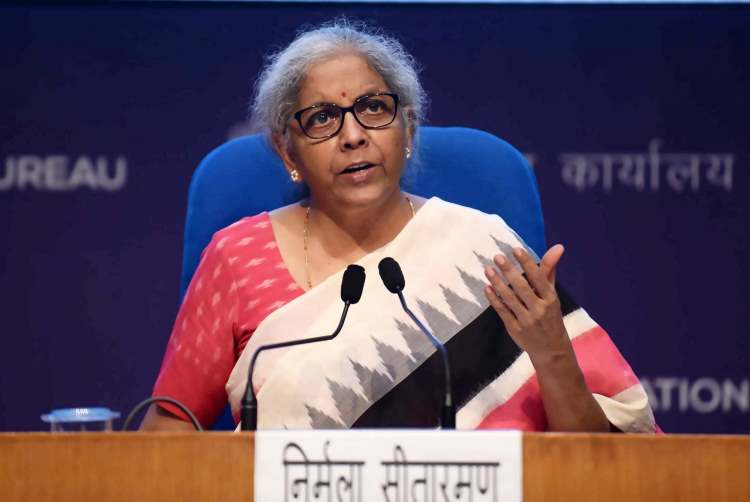Budget 2025: The Union government will present an interim budget for financial year 2024-25 on February 1, because of the upcoming parliamentary elections in April-May 2024. There have been discussions in academic and business circles about the upcoming budget about what finance minister Nirmala Sitharaman may, or may not, do, considering the limitations of an interim budget.
To boost economic growth, the government is likely to raise capital expenditure, particularly in the infrastructure sector. In the 2023-24 budget, capital expenditure outlay was raised by 37.4% to Rs 10 lakh crore, with most of these funds allocated to roads, highways, railways, and defence. This resulted in a major expansion of the network of national highways and roads in FY2023-24.
READ I Election year nightmare: Can Budget 2025 tame the fiscal deficit beast
Budget 2025 – election-year challenges
India’s net direct tax collection has seen a significant 19% increase, reaching Rs 14.70 lakh crore, as per the latest government data released on January 11, 2024. Furthermore, the government has already achieved 81% of the full-year target, with gross collections at Rs 17.18 lakh crore, 16.77% higher than the corresponding period of the previous year. This indicates that the government has comfortably funded key schemes in agriculture, women’s welfare, and for the lower-middle class. RBI Governor Shaktikanta Das projects a GDP growth of 7% for 2024-25.
The Union government allocated over ₹1.12 lakh crore to the departments handling school education, literacy, and higher education in 2023-24. Women’s welfare is expected to be a focal point of Finance Minister Sitharaman’s budget speech on February 1, in line with Prime Minister Modi’s vision of women-led development. Schemes such as the Mahila Samman Savings, Beti Bachao Beti Padhao, Working Women Hostel, and Women Helpline have garnered a significant response from the neo-middle class.
The ministry of tribal development, responsible for tribal welfare schemes, saw a sharp increase in allocation in 2023-24. This trend is anticipated to continue in 2024-25. In the 2023-24 budget, a total of Rs 15,000 crore was earmarked under the development action plan for scheduled tribes. Additionally, initiatives like PM JANMAN, Aadi Mahotsav, and the inauguration of seven Ekalavya Model Residential Schools were notable in 2023.
Over the past five years, the government has emphasised building robust infrastructure. Infrastructure spending as a percentage of GDP rose from 1.13% in FY 2019-20 to an estimated 3.3% in FY 2023-24. Projects like Bharatmala Pariyojana, slated for completion by 2027-28, are pivotal. Major projects initiated in 2024 include the Delhi-Vadodara Expressway and the Hyderabad-Vishakhapatnam Corridor. This suggests that the FY2024-25 budget will likely maintain significant allocations for infrastructure projects, enhancing connectivity and job creation.
However, most spending has been concentrated on roads and railways, with a decrease in urban development and energy as a share of GDP. The government is expected to shift some focus to port and shipping improvements, energy—particularly green and sustainable energy—and urban infrastructure. This budget should mark a transition from carbon-dependent to energy-efficient policies.
The Indian semiconductor industry, currently valued at $23.2 billion, is projected to reach $80.3 billion by 2028, growing at a CAGR of 17.10% (according to the Invest India Report). The recent Vibrant Gujarat Global Investor Summit 2024 witnessed TATA Group’s commitment to building India’s first semiconductor fabrication plant. Another emerging industry likely to be highlighted in the FY2024-25 budget is Electric Vehicles (EVs).
The government wants EVs to account for 30% of new private vehicle registrations by 2030. Allocations to specialised fields like Quantum Computing and Artificial Intelligence are expected to be marginally different from last year, with a greater focus on public utilities and infrastructure.
Overall, the interim budget adheres to the parliamentary tradition of not announcing major policies or schemes. The Interim Budget 2023-24 is pivotal in shaping voter attitudes in the forthcoming general elections, necessitating careful allocation to ensure equitable support across various industries and sectors.
(Pravin Jadhav is Coordinator, Humanities and Social Science Department, IITRAM. Jalaj Shah and Chirayu Sharma are students at Institute of Management, Nirma University.)

